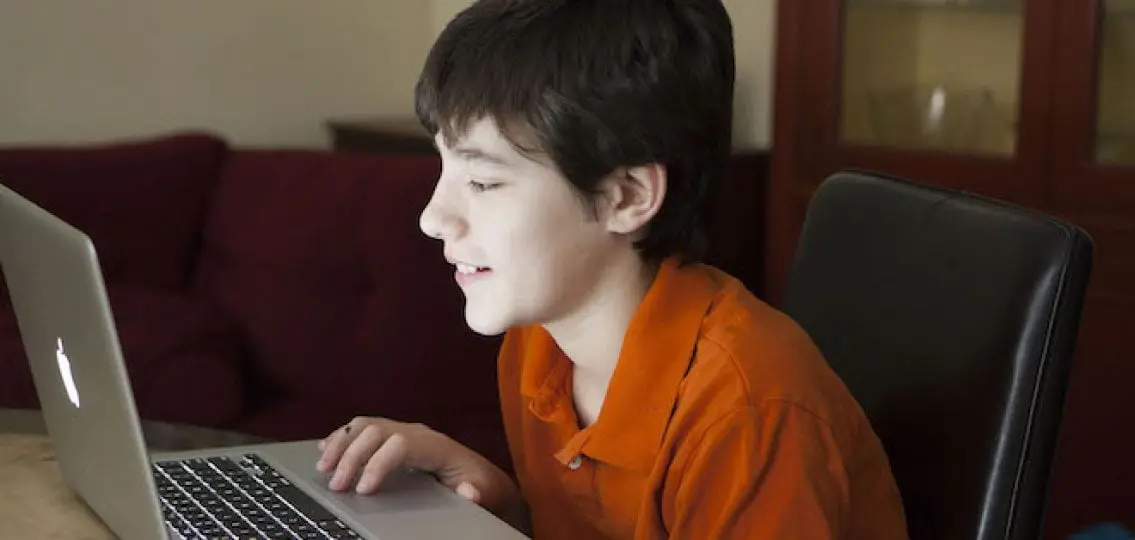Not long ago, I was out with my family for dinner at a local restaurant. On my left were my two sons and to my right, my husband–all three busily staring at screens. I had no screen in front of me, mainly because I didn’t feel like getting my phone out and there was nothing I wanted to see.
My younger son laughed at something. I asked what it was, and he launched into a long narrative involving llamas and whatever else. My husband mentioned Goldie Hawn and I suddenly wondered how old she was. Now, I did get out my phone, to look it up. Turns out that she’s 72. The same age as Helen Mirren. We marveled a bit over that.
Screen Time for Teenagers
Long story short: we spoke to each other, not necessarily in spite of the devices. Possibly even because of them.
Long story shorter: I don’t fear screen time. Period.
I do get it, though. For many, screen time is the enemy because it’s not how things used to be. Tons of studies have been produced, citing screen time as the driving force behind everything from emotional disorders to relationship issues to actual physical maladies.
We’re told that screen time makes our children more likely to be depressed. It kills attention spans and creates children who demand immediate gratification. They’re screen addicts. They’re impulsive and moody and basically doomed.
I will readily admit that I am no expert. The trouble is, if you really think about it, even the experts are not experts. It’s all too new, and many of those studies that you read about are based on anecdotal evidence. On top of all that is the fact that correlation does not always – maybe not even often – equal causation. How do we know that depressed preteens and teenagers are not more likely to spend tons of time on video games, rather than the other way around?
The Dangers of the Telegraph
I think the rhetoric around screen time is at least a little overblown. Consider: Socrates, when faced with the written word, declared that it would lead to forgetfulness and worse. Many opposed the printing press, as it made information available to the masses that had previously been limited to those who could afford handwritten texts. We’d all love our children to read more, but at one point in our history, novels were thought to be a primary cause of intellectual corruption. Later, television was demonized as far too passive, a deterrent from more mentally challenging pursuits.
Believe it or not, we once feared that the telegraph–the telegraph!–would ruin human interaction.
It’s easy to think that while our historical fears may have been a bit far-fetched, our current ones are entirely justified. “When I was your age,” we say, “I was outside until the streetlights came on!” We watch as our kids interact with friends via video games and shake our heads sadly: “They’ll never know true friendship.”
So, we read articles, and we set limits, and we try our best to teach our kids to look up, to listen, to engage in the world around them instead of a world made up of bits and bytes.
There’s No Fighting Progress
In my house, we limit our kids to one hour of video games on a school night. That’s it. I suspect my husband would like to set limits at other times, too, but I find that our kids will generally do that on their own. Yes, they’ll spend hours on end playing Fortnite or plugged into their phones. But left to their own devices (ha), even these little screen addicts will look up once in a while and say, “I’m bored. I want to do something.”
Here’s an interesting quote, fairly popular and taken from Douglas Adams’ The Salmon of Doubt:
“I’ve come up with a set of rules that describe our reactions to technologies:
- Anything that is in the world when you’re born is normal and ordinary and is just a natural part of the way the world works.
- Anything that’s invented between when you’re fifteen and thirty-five is new and exciting and revolutionary and you can probably get a career in it.
- And Anything invented after you’re thirty-five is against the natural order of things.”
The bottom line is, whether we like it or not, there’s no fighting progress, though there’s plenty of time wasted in trying. I’m not suggesting we all plant our children in front of screens and forget about them for days on end. But I do think it’s time to start figuring out how to make the best of the online poker hand we’ve been dealt.



